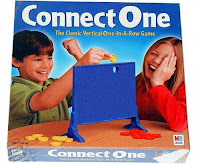On Reuters today, John Paulson is on the front page. In 2007 he made US$4 billion by buying against the sub-prime mortgage sector. Last week, he bought a stake in a freaking gold mining company (everyone loves gold during a recession).
While everyone is going all out to cut losses in the last few months (especially the poor Russians), he made a freaking killing out of these miserable times.
Guru, indeed.
I've recently bookmarked Reuters in my Firefox. It's a good source of international news but feels quite Americanised despite it being based in the UK. It claims to be as objective as possible in its reports, i.e. its journalists have to stay neutral in everything, but sometimes they aren't really so.
Doesn't it feel pointless to live believing that you will be forgotten within a century? Your flesh rots into nothingness and your bones become dust. Memories of you fade and nothing is left of you that is credited to you.
Every man wants to leave a legacy. Most do so by having children. But children die and bloodlines end; last names change and ancestors join their own ancestors as part of ancient history.
One day, maybe there will be a system that logs everything done by everyone, creating a massive library of epic proportions consisting of the life stories of everyone who ever lived.
Then, everyone will be forgotten, yet not.
No man will ever have to worry about not leaving a legacy. All of mankind from then on will be as immortal as the hardware technologies.
But this, I imagine, will take place after a series of major technological breakthroughs, one of which being computer implants into the human body.
Perhaps a chip can be inserted into the human body that works as a identity card, credit card, etc. Being rewritable, this chip can do everything the plastics in your wallets do. Membership cards, passports and everything will be combined into this chip, so people do nothing but walk through scanners.
Will this not be wonderful?
Actually, it doesn't even need to be implanted into the human, but if it is it would solve a lot of security problems. I believe this can already by done with existing technologies, but the chip is probably too big , the process too painful and the signals too unreliable.
If it succeeds, this would be the first major step towards the epic library and the complete removal of privacy.
The next step would be the surveillance of all humans with such implants. Not only would this chip contain your whole resume, it would record everything you buy and everywhere you go.
Already, this is being done each time you use your credit card and whenever you take public transport (if your country uses a smart card for payments of public transport fares).
It would be even better if an electronic memory bank is implanted to replace its organic counterpart, so that people can delete what they forget. When they die, this memory bank will be a complete record of a whole life. But this is hard to accomplish because philosophically speaking, you'll no longer be truly human when you have that in your head.
The surveillance of all humans will require a giant leap of data storage technologies. We will need more than just petabytes of space to record all that.
Of course, Big Brother will have to be a commonly accepted fact of life before that.
And before that, incredible AIs will be needed for the administration of such a phenomenon. It will be something like the final story in the book I, Robot by Isaac Asimov, in which the Machines take over the control of all aspects of the world economy (with only good intentions, of course, due to the Three Laws of Robotics).
I don't see how such a thing can ever be bad. I seriously trust computers more than people - computers cannot lie. Such a revolution can only result in peace and a safe environment for everyone.
With intelligent AIs ruling humanity, Big Brother will not be an evil concept that it is today. As long as the AIs don't turn greedy and power-hungry the way humans do, Big Brother is nothing but a big brother, always watching out for you.
My internet connection costs me S$116 a month. Come to think of it, it is rather expensive. Starhub is practically begging me to download stuff to get my money's worth. But I don't have much to download since good games are hard to come by these days. Most games are really just overhyped nonsense, packaged really nicely but don't live up to expectations.
In fact, I expect Starcraft 2 to be the same. The Koreans will probably stick with the first game for many more years. There really isn't anything wrong with not changing the game. Maybe someday they should consider sticking to the same old game but tweaking the game mechanics forever, just like people do for physical sports like soccer and basketball.
Or MMORPGs.
Right now Starcraft is similar to this only in the fact that they have professional mapmakers who come up with new maps regularly for competitive play. But game mechanics stay the same.
I wonder why they won't just make more expansions. It would satisfy the fanbase and not repel anyone because they screwed up the new game, like developers always do with sequels.
What I'm saying is instead of making sequels, they should just make expansions after expansions. Add or change units the way soccer evolved from a bloated bladder to a leather ball.
Revamping the whole game isn't the way. For one, fantastic graphics may sound like a great attraction but in fact pushes away part of the old fanbase who don't own up-to-date computers.
Second, new games mean very different game mechanics. People naturally hate large changes. Changing important game mechanics must be done slowly to give people time to adapt without losing interest.
Third, continuing the storyline of a game doesn't necessarily require a whole new game because expansions can accomplish the same thing.
What if expansions not only add units and change the way old units work (eg templars in Starcraft and Brood War) but also improves some of the graphics? Slowly as the expansions pile up, the game's graphics would be upgraded step-by-step until eventually it becomes a whole new game.
Such a long series of expansions will also require the developers to write their expansions such that they delete obsolete game files, in order not to make their games obscenely large.
It would be like the way Warhammer 40k had 3-4 expansions. Everyone loves Dawn of War, but reviews for DoW2 are mixed. What if DoW had improved its graphics slowly in its expansions and continued to making more than 5 expansions? It would be like a RTS game that follows the marketing strategy of MMORPGs.
However, there would be a major difference in that MMORPGs generally charges their players regularly as they play, while RTS games profits solely from game sales. Since they cannot charge too much from expansions and players generally decrease in numbers as time passes, profits go down as the number of expansions go up. Unless they can hold on to the fans and/or attract new ones, the latter I believe is precisely why they make sequels instead of more expansions.
Here's a challenge. Let's see how long you can hold your laughter. Best if you open all the pics on tabs. Just right click and press T on each pic. May take some time to load.
Hard mode: Don't even smile
There are only 25 pics below so it's actually really short. Take a few deep breaths... Now go!

























No comments:
Post a Comment